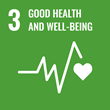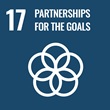Project information
Analysis of Czech Genomes for Theranostics
(ACGT)

- Project Identification
- CZ.02.1.01/0.0/0.0/16_026/0008448 (kod CEP: EF16_026/0008448)
- Project Period
- 1/2019 - 6/2023
- Investor / Pogramme / Project type
-
Ministry of Education, Youth and Sports of the CR
- Operational Programme Research, Development and Education
- Priority axis 1: Strengthening capacities for high-quality research
- MU Faculty or unit
- Central European Institute of Technology
- Cooperating Organization
-
Charles University
Palacký University, Olomouc
Genomac Internationals, s.r.o.
Institute of Applied Biotechnologies a.s.
CGB laboratoř a.s.
In the beginning of this millennium, a new era of human research started. First human genome followed by first individual human genomes were published. This led to the rise of genomics, a scientific field with a holistic approach, studying complete genetic information of an organism as the whole. A rapid advancement of technologies for massive parallel sequencing of nucleic acids has enabled to run projects aiming not only to obtain a whole genome sequence, but it also focusing on its interpretation. One of the first such projects was The 1000 Genomes Project, which represented a breakthrough and many international and local projects have followed up on it (gnomAD, Genomics England, deCODE, Genome Russia, Genome Asia 100K etc.). The data produced by these projects clearly demonstrate the need to obtain genomic data on the specific populations to allow them to be correctly interpreted with the respect to natural inter-individual variability. However, the current genomic data of Central and Eastern European populations (including the nationalities living in the Czech Republic) are only poorly represented in the publicly available databases. This makes very difficult for the Czech geneticists and researchers to interpret variants found in the whole genome sequence of local individuals. This can for example pose a serious issue in case of genetic diagnostics, when a non-pathogenic variant can be misinterpreted as pathogenic, because it is not commonly found in international databases, and the pathogenic variant could be overlooked. Therefore, we aim to map genetics variants in the local populations living in the Czech Republic thoroughly. Additionally, our goal is to compare them other populations. We also want to determine the presence of pathogenic alleles associated with various diseases in the Czech population in order to find out more common alleles and define the diseases with high predisposition rate. This information would be useful not only for genetic research but mainly for diagnostics of numerous diseases with genetic background including oncological, cardiological, neurological, metabolic and many others.
Sustainable Development Goals
Masaryk University is committed to the UN Sustainable Development Goals, which aim to improve the conditions and quality of life on our planet by 2030.
Publications
Total number of publications: 12
2021
-
Chromothripsis in Chronic Lymphocytic Leukemia: A Driving Force of Genome Instability
Frontiers in Oncology, year: 2021, volume: 11, edition: November 2021, DOI
-
Low-burden TP53 mutations in CLL: clinical impact and clonal evolution within the context of different treatment options
Blood, year: 2021, volume: 138, edition: 25, DOI

